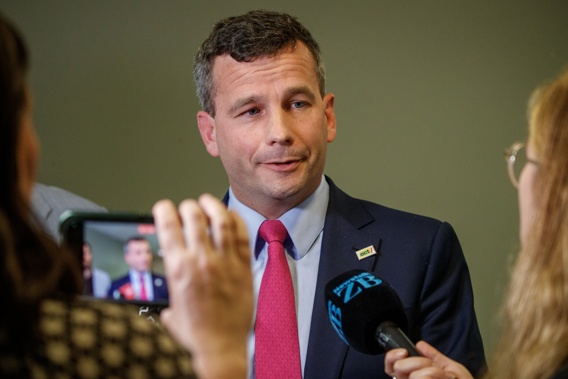
David Seymour should “be very careful” what he wishes for with his controversial Treaty Principles Bill, former Treaty Negotiations Minister Christopher Finlayson says.
Oral submissions on the bill, which seeks to replace the current Treaty principles with three new ones and enshrine them in law, are being heard before Parliament’s Justice Select Committee.
The committee has about 80 hours of submissions to hear while an estimated 300,000 written submissions have been received – a record.
Finlayson, submitting on behalf of the New Zealand Bar Association, told the committee on Monday the bill was “above all ... misconceived.”
 Christopher Finlayson, who served as Attorney General between 2008-2017, says its clear there is an issue with our name suppression outcomes that necessitates a review. Photo / Mark Mitchell
Christopher Finlayson, who served as Attorney General between 2008-2017, says its clear there is an issue with our name suppression outcomes that necessitates a review. Photo / Mark Mitchell
“It endeavours to raise a number of principles that do not reflect the relationship of the Treaty of Waitangi between the Crown and tangata whenua.”
He said the principles could potentially be a part of a written constitution, “although they are not particularly well-drafted”.
“Or possibly included in a constitution act, but they don’t belong in the Treaty of Waitangi Principles Bill because they don’t accurately define the relationship between the Crown and tangata whenua.”
He said there were “obvious limits” and issues that were beyond the competence of Parliament and that included interfering with the Treaty of Waitangi which “stands quite apart from Parliamentary sovereignty”.
In response to a question from Green MP Tamatha Paul, Finlayson also said that if certain rights had been confirmed in iwi settlements “and I refer particularly to the Ngāi Tahu Claims Settlement Act 1992, be very careful what you wish for because it may give Ngāi Tahu a lot more authority over Te Wai Pounamu than Mr Seymour and his cohorts intend.”
Commentator David Farrar also provided an oral submission today. He told the committee he believed it would “be a very good thing” to have parliamentary or legislative definitions of the principles of the Treaty.
He said it would provide certainty. “A lot of the challenges we have had in the 5-10 years are people are uncertain, they are anxious over how interpretations of the Treaty impact them.
“You can say, let’s leave it up to the courts. But ultimately these are political issues, they are not just judicial issues.
“I would love to see Parliament step up and actually do its job as legislators and say these are what we think are the principles of the Treaty.”
In his oral submission on Monday morning, Seymour said the way the Waitangi Tribunal had defined the principles was “incompatible with freedom under the law, a free society”.
In a media standup prior to his submission, the Act leader told reporters this was a “185-year debate”. He said it was “a great day for New Zealand” and he was “absolutely” open to having his mind changed during the select committee process.
Asked if he was ready for those who would be criticising the bill in submissions, he said he had a thick skin
‘Laughing stock of the Western world’
Sir Edward (Taihakurei) Durie, who helped established the Waitangi Tribunal and served as its chairman as well as a chief judge of the Māori Land Court, said the bill had ignored 50 years of work by well qualified Māori and Pākehā on the Waitangi Tribunal that had gone in to inform the current Treaty principles.
“The principles of the Treaty as described in the bill do not in fact reflect the purpose and intent of the Treaty as recorded in both Treaty texts. They are not therefore Treaty principles if they do not emanate from the Treaty. There is an extraordinary ignorance in presuming otherwise.
“If this bill would pass, I believe that our Government would be the laughing stock of the Western world who understand how responsible states today seek to manage relationships with their indigenous people.”
Julia Gabel is a Wellington-based political reporter. She joined the Herald in 2020 and has most recently focused on data journalism.
Take your Radio, Podcasts and Music with you









